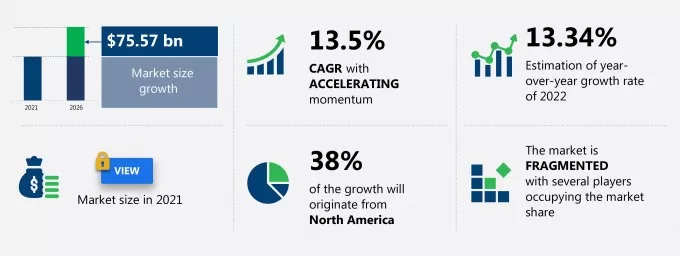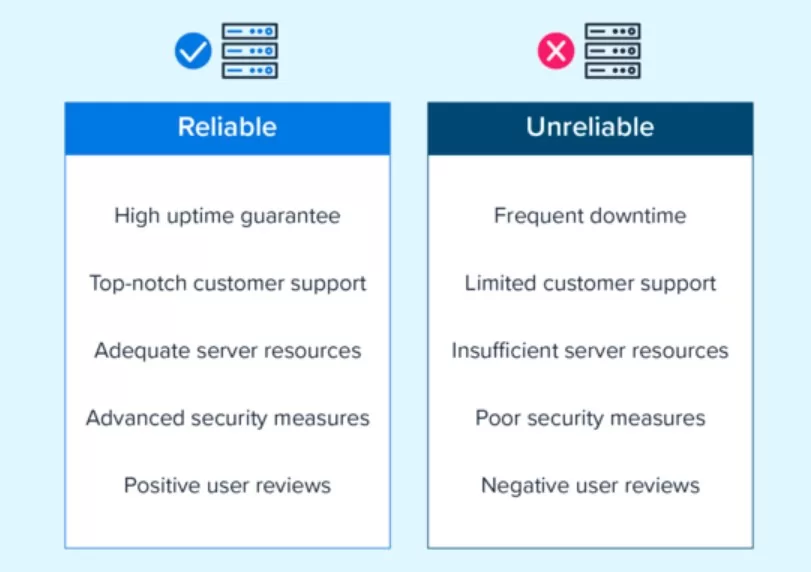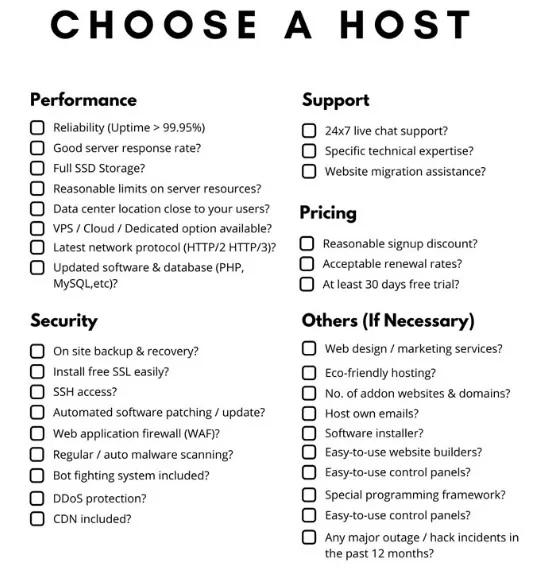Blogs

Server Management: The Ultimate Guide
June 19, 2023
10 Ways In Which Web Hosting Is Transforming E-Commerce?
June 30, 2023According to web hosting statistics, the global web hosting market will surpass the $90 billion mark in 2023. Not only that, the web hosting market is projected to hit the $267 billion mark by 2028. This means that the web hosting market will be 3X in value in the next five years.

Expect to see many new web hosting providers pop up to take advantage of these exponential growth. With more than 300,000 web hosting providers out there and many more being added every day, this makes it difficult for businesses to choose the right web hosting plan for their business. If you are facing similar challenges, this article will help you choose the right web hosting plan.
- Why Choosing The Right Web Hosting Plan Is Important For Your Business?
- 1. Performance:
- 2. Scalability and Flexibility:
- 3. Customer Support:
- 4. Cost:
- How To Choose The Right Web Hosting Plan For Your Business?
- 1. Assess Your Website Requirements:
- 2. Understand Different Hosting Types:
- 3. Consider Your Budget:
- 4. Scalability and Growth Expectations:
- 5. Reliability and Uptime Guarantee:
- 6. Support and Customer Service:
- 7. Security Measures:
- 8. Server Location and Performance:
- Conclusion:
Why Choosing The Right Web Hosting Plan Is Important For Your Business?
Here are some of the reasons why choosing the right web hosting plan is crucial for your business.
1. Performance:
Choosing the right hosting plan directly impacts your website’s performance. A dependable provider with strong infrastructure ensures fast loading times and a smooth user experience. Fast-loading websites improve user satisfaction and positively impact search engine rankings. Prioritizing a reliable hosting plan is crucial for optimal website performance.
2. Scalability and Flexibility:
The right hosting plan should offer scalability and flexibility to accommodate increased traffic, resource requirements, and additional functionalities. Scalable hosting plans enable you to upgrade seamlessly as your business expands, preventing server performance issues and downtime due to resource limitations.
3. Customer Support:
Just because you have chosen the best hosting plan offered by the best web hosting provider in your city does not mean that you won’t have to run into any issues. Opt for a web hosting provider that offers round the clock live chat support, phone support facility and an efficient ticketing system to troubleshoot user problems. The more efficient your customer support might be, the less downtime your business will have to encounter.
4. Cost:
While web hosting cost should not be the sole determining factor, selecting the right hosting plan based on your budget is essential. A well-suited hosting plan offers the necessary resources and features without overpaying for unnecessary extras. Hitting the sweet spot between cost and performance is important to ensure scalability and optimal performance.

How To Choose The Right Web Hosting Plan For Your Business?
1. Assess Your Website Requirements:
- Identify the why behind your website. Why are you creating your website in the first place
- How many visitors will your website get everyday on average? Decide on the number of pages your website will have. This will help you estimate the resource requirements to run your website smoothly
- Consider the need for specialized features like databases, email accounts, SSL certificates, or content management systems (CMS).
2. Understand Different Hosting Types:
There are many different types of web hosting. Some of the common ones are as follows:
- Shared Hosting: Ideal for small websites with limited traffic, as server resources are shared among multiple users.
- Virtual Private Server (VPS) Hosting: Offers more control and resources by partitioning a physical server into virtual instances.
- Dedicated Hosting: Provides exclusive access to an entire server, offering maximum control and resources.
- Cloud Hosting: Utilizes a network of interconnected servers to distribute resources and provide scalability and flexibility.

3. Consider Your Budget:
Determine your allocated budget for web hosting, keeping in mind the long-term costs and potential upgrade requirements. Don’t just buy a hosting plan based on the upfront cost, Compare pricing plans, taking into account renewal prices, introductory discounts, and any additional fees for domain registration, SSL certificates, or customer support.
4. Scalability and Growth Expectations:
Anticipate your website’s growth potential and evaluate whether the hosting provider offers scalable plans or easy upgrades as your needs evolve. Consider the ability to handle traffic spikes, additional resource requirements, and the option to seamlessly upgrade to more advanced hosting solutions.
5. Reliability and Uptime Guarantee:
Research the hosting provider’s uptime guarantee, ensuring your website remains accessible to visitors without frequent downtime. Look for reliable server infrastructure, redundant systems, backup solutions, and proactive monitoring for optimal uptime performance.
6. Support and Customer Service:
Evaluate the hosting provider’s customer support channels, such as live chat, ticketing systems, or phone support, and their availability. Read customer reviews or testimonials to assess the provider’s responsiveness, technical expertise, and overall customer satisfaction.
7. Security Measures:
Prioritize the security features provided by the hosting plan, including firewalls, malware scanning, SSL certificates, and regular backups. Ensure the hosting provider implements robust security measures to protect your website and sensitive customer data.

8. Server Location and Performance:
Consider the geographic location of the hosting servers to ensure optimal website speed for your target audience. Opt for hosting providers with data centers strategically located closer to your target market or utilize content delivery networks (CDNs) for faster delivery of content.
Conclusion:
Choosing the right web hosting plan is a vital decision that directly impacts your online business success. By carefully assessing your website requirements, budget, and growth expectations, you can make an informed decision. Don’t forget factors such as scalability, reliability, security and customer support. Select a web hosting plan that fulfills your business needs.
Did this article help you in choosing the right web hosting plan for your business? Share it with us in the comments section below.
M Ali
Featured Post
New Year New Website: Essential Tips for Choosing the Best Web Hosting Provider
Table of Contents New Year New Website: How To Choose the Best Web Hosting Provider? 1. Understand Your Hosting Needs 2. Consider the Types of Web […]
The Future of Web Hosting: Trends to Watch in 2025
The digital landscape is evolving. The Future of Web Hosting industry is experiencing significant changes that promise to reshape the future of online presence. From advancements […]
What is a Subdomain? The Only Guide You Will Ever Need
A subdomain is a subdivision of a main domain used to organize and manage different sections of a website, especially when those sections are large enough […]





